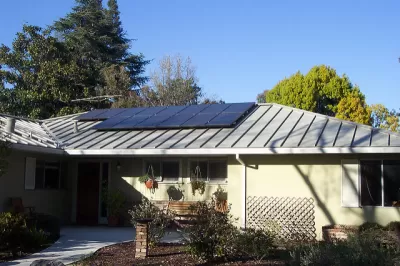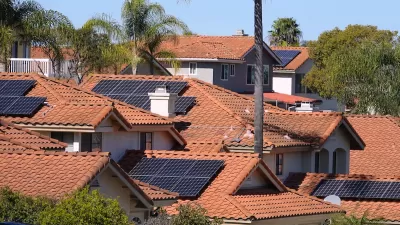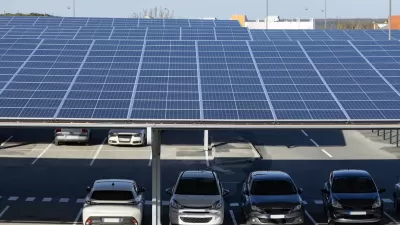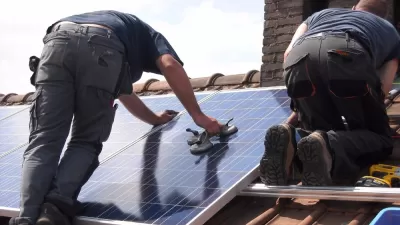Georgia politics haven't usually been friendly to renewable energy. But some unlikely alliances, and a healthy dose of economics, can go a long way.

Only a few years ago, the state of Georgia "didn't have much solar power at all," James Bruggers writes. But last year, it ranked as one of the nation's top solar power states, producing enough energy to power 175,000 homes. Bruggers traces the history of that shift, and how it has bucked expectations for energy politics in a conservative state.
One of the leading figures is Lauren "Bubba" McDonald, Jr., chairman of Georgia's Public Service Commission. An "early Trump supporter," McDonald "has been pushing Georgia Power, the state's largest utility, to invest in clean energy by ensuring that solar is included in the utility's long-term power plans, updated every three years."
The PSC may shift further toward solar later this year, as "solar advocates expect a voter backlash this fall against the all-Republican, elected commission over a costly nuclear power plant expansion." That project, an expansion to the Vogtle nuclear plant, has been costing the typical Georgia Power customer an extra $100 a year since 2011, Bruggers writes.
As the costs of solar continue to fall in the sunny state, renewable energy has spurred unlikely alignments between groups like the Sierra Club and the Tea Party. "It's all about the message," said Debbie Dooley, a Tea Party activist who leads the so-called Green Tea Coalition. "Free market, competition, choice, expanding the energy portfolio and energy mix. I don't want excessive regulations."
FULL STORY: How Georgia Became a Top 10 Solar State, With Lawmakers Barely Lifting a Finger

Alabama: Trump Terminates Settlements for Black Communities Harmed By Raw Sewage
Trump deemed the landmark civil rights agreement “illegal DEI and environmental justice policy.”

Study: Maui’s Plan to Convert Vacation Rentals to Long-Term Housing Could Cause Nearly $1 Billion Economic Loss
The plan would reduce visitor accommodation by 25% resulting in 1,900 jobs lost.

Why Should We Subsidize Public Transportation?
Many public transit agencies face financial stress due to rising costs, declining fare revenue, and declining subsidies. Transit advocates must provide a strong business case for increasing public transit funding.

Paris Bike Boom Leads to Steep Drop in Air Pollution
The French city’s air quality has improved dramatically in the past 20 years, coinciding with a growth in cycling.

Why Housing Costs More to Build in California Than in Texas
Hard costs like labor and materials combined with ‘soft’ costs such as permitting make building in the San Francisco Bay Area almost three times as costly as in Texas cities.

San Diego County Sees a Rise in Urban Coyotes
San Diego County experiences a rise in urban coyotes, as sightings become prevalent throughout its urban neighbourhoods and surrounding areas.
Urban Design for Planners 1: Software Tools
This six-course series explores essential urban design concepts using open source software and equips planners with the tools they need to participate fully in the urban design process.
Planning for Universal Design
Learn the tools for implementing Universal Design in planning regulations.
Smith Gee Studio
Alamo Area Metropolitan Planning Organization
City of Santa Clarita
Institute for Housing and Urban Development Studies (IHS)
City of Grandview
Harvard GSD Executive Education
Toledo-Lucas County Plan Commissions
Salt Lake City
NYU Wagner Graduate School of Public Service





























